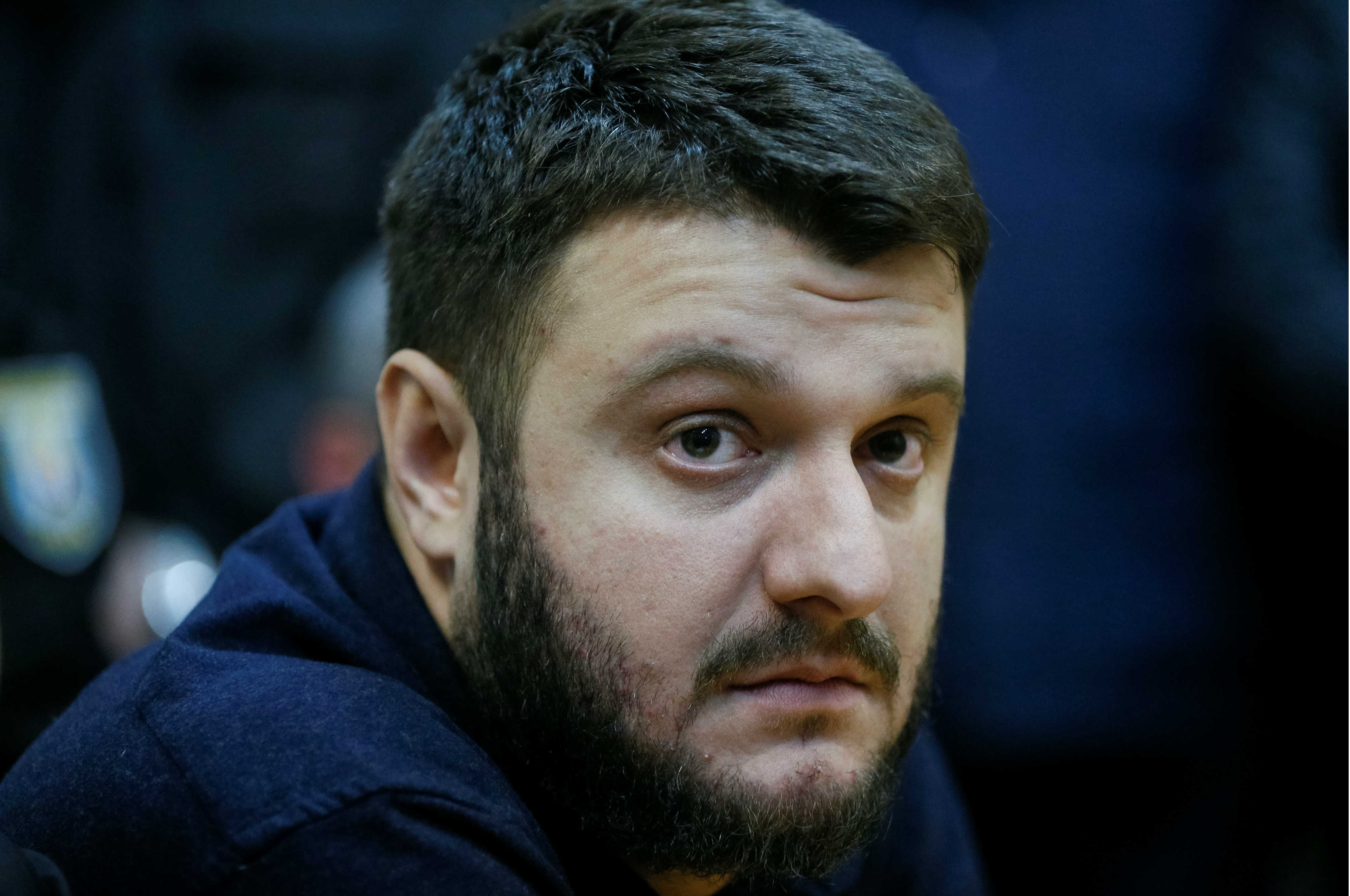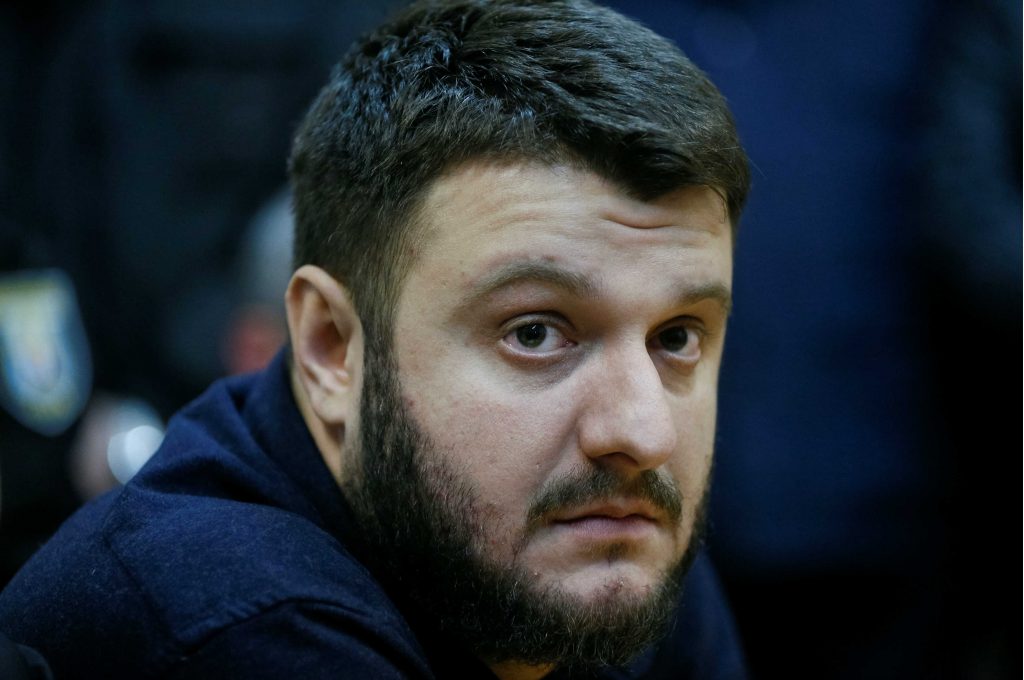 Having admitted to a decade-old sexual harassment incident in which he touched a journalist’s knee at a party conference, British Defense Minister Michael Fallon resigned, stating, “I accept that in the past I have fallen below the high standards that we require of the Armed Forces that I have the honor to represent…I am therefore resigning as defense secretary.”
Having admitted to a decade-old sexual harassment incident in which he touched a journalist’s knee at a party conference, British Defense Minister Michael Fallon resigned, stating, “I accept that in the past I have fallen below the high standards that we require of the Armed Forces that I have the honor to represent…I am therefore resigning as defense secretary.”
By contrast, Ukraine’s Interior Minister Arsen Avakov brought goons in camouflage to court to help his son avoid imprisonment. His son, Oleksandr Avakov, who potentially faces up to twelve years in prison if convicted of embezzlement of public funds allocated for the purchase of military backpacks worth 14 million hryvnias ($520,000), was recently released from custody. Both father and son claim the case is politically motivated.
The minister’s views on the high standards of National Guard soldiers, which Avakov oversees, remain a mystery.
With only a three-hour flight from the United Kingdom to Ukraine, centuries of evolution separate these two men. The only question is whether we can wait a couple of centuries to live like Britain.
When you are asked why we don’t live like Britain and why we have a weak economy and no foreign investments, tell them this story.
Investors have precisely such stories in mind when they compare Ukraine with Ghana, and not Britain. Next time when you go to the polls and they tell you “we need people with different values,” they mean exactly this story. Do not brush aside values. It is precisely the values that differentiate the British defense minister from the Ukrainian minister of internal affairs. In every other respect they look alike—with one head, two arms, and two legs. But values are not empty words. Values are fundamental.
It is the values that divide people into those for whom seeing the detention of Avakov’s son makes their hair stand on end and those who take this for granted. They divide people into those who feel repelled by “winning the lottery,” as Radical Party leader Oleh Lyashko claims he’s done for the third time and those who are not insulted by it.
Today when a business hires managers, successful companies are not that interested in a candidate’s resume as they are in his or her values. An individual with a Harvard degree or experience in running a state-owned company is of little importance if that person is rotten inside.
If society shares the values of the government, that government will never change because it won’t have any incentive to do so. If the government imposes its values on society, it will become eternal.
It’s not important who comes to power; what matters is that only social values compel him to resign or cling to his post. And only social values enable them to cross the line of no return. But if a drowning man doesn’t want to sink to the bottom on his own, he tugs everyone along with him to the bottom, where darkness reigns most notably in the mind.
Every trial is another test. Are people willing to tolerate such conduct by the government? Or can they forgive? And if they can, they have no one to blame but themselves because everyone who now votes for a political party that includes Avakov or those who publicly supported his demeanor in the situation with his son will have become complicit in it. The trial is just one of hundreds of stories shaping the identities of people who, in two years, will ask for your vote and want to make you their accomplices. This means they are just as responsible for their country’s poverty.
Sergey Fursa is a specialist in debt securities sales at Dragon Capital. This article originally appeared on Fursa’s Facebook page in Russian, was published by Novoe Vremya, and has been translated with the author’s permission by Vera Zimmerman.
Image: Son of Ukrainian Interior Minister Arsen Avakov, Oleksandr Avakov (L), who is under investigation over suspected corruption, attends a court hearing in Kyiv, Ukraine November 1, 2017. REUTERS/Valentyn Ogirenko
